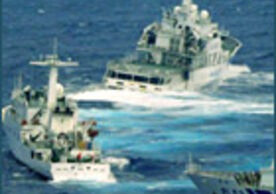A readily measurable aspect of globalization is the increasing exchange of capital, products and services across national boundaries, spurred by expanded use of container shipping and other technological improvements as well as falling barrier. The interdependence is most apparent with global supply chains, as manufactured goods like vehicles and electronics are assembled with components produced around the world, and it’s increasingly rare for any country to be the sole source of any one complex product. Countries aim to increase exports but worry about too many imports and trade imbalances, even as their consumers pursue low prices. Disagreements on subsidies, tariffs, quotas or unfair practices are debated by the World Trade Organization.





